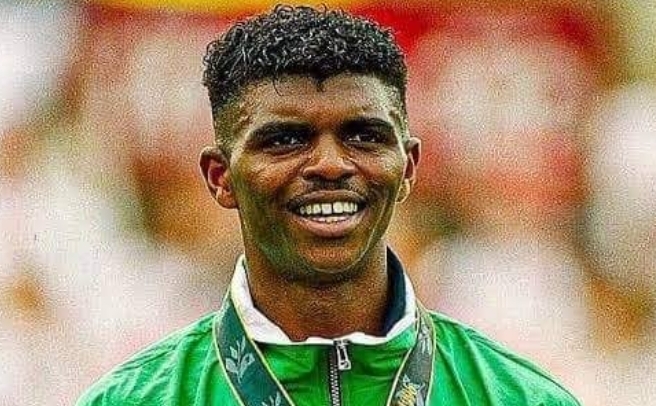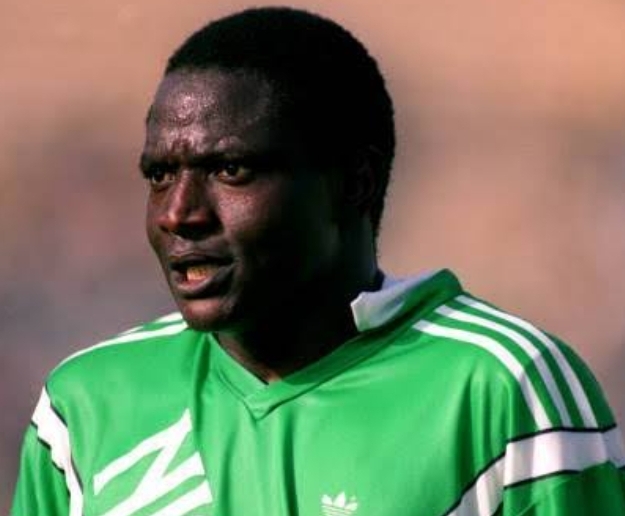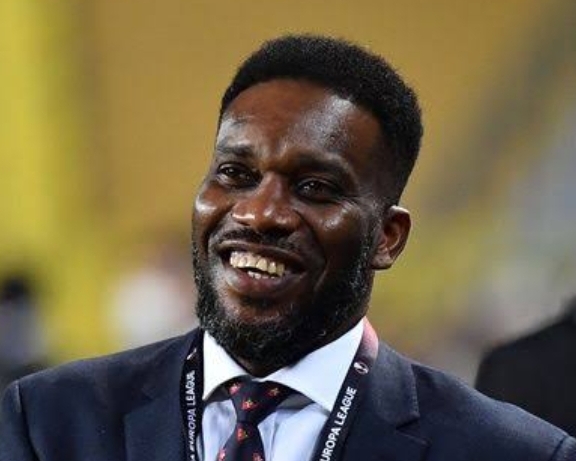Mikel John Obi Biography: Early Life, Education, Career, Spouse, Net Worth, Achievements, Age 2025

Mikel John Obi is a Nigerian footballer who rose from a small town in Jos to play at the highest levels of international football. For over a decade, Mikel was a key player at Chelsea Football Club in England and also a leader in the Nigerian national team. His story is one of talent, determination, and perseverance. From playing barefoot on the streets of Jos to lifting the UEFA Champions League trophy and the Africa Cup of Nations, Mikel’s journey is a reminder that dreams can come true with hard work and discipline.
Early Life and Family Background
Mikel John Obi was born as John Michael Nchekwube Obinna on April 22, 1987, in Jos, Plateau State, Nigeria. He was born into the family of Mr. Michael Obi and Mrs. Ifeoma Obi. His father, Michael, was a civil servant who later worked as a businessman running a transport company, while his mother, Ifeoma, was a homemaker who supported the family in every way she could. Mikel was raised in a Christian home with strong values of discipline and respect.
Mikel grew up with several siblings. He had brothers and sisters who shared the same childhood struggles and joys. While not all of their names are well documented in the media, what is known is that Mikel was very close to his family, and they all supported him as he pursued his football career. His father especially played a strong role in guiding him, although at first he wanted Mikel to focus on education before fully embracing football.
Read Also: Nwankwo Kanu Biography: A Football Icon and Humanitarian
Education and First Steps in Football
As a child, Mikel attended Jos Metropolis Township Primary School. Like many young Nigerian children, he balanced education with playing football on the dusty streets and fields of Jos. Teachers and classmates often noticed his love for football, and he quickly stood out for his skills. His strength, energy, and natural understanding of the game made him different from other children his age.
At the age of 12, Mikel joined the Pepsi Football Academy, one of the most respected football training academies in Nigeria. The academy had already produced several football stars, and joining it gave Mikel the opportunity to sharpen his skills in a more professional environment. His time at the Pepsi Academy opened doors for him to play for Plateau United, a local Nigerian football club that also produced other famous players such as Celestine Babayaro and Victor Obinna. Playing for Plateau United exposed Mikel to scouts and helped him gain recognition at the national level.
Mikel’s big break came when he was selected to represent Nigeria at the FIFA U-17 World Cup in 2003 in Finland. Although Nigeria did not go very far in the tournament, Mikel impressed football scouts with his calm style of play, vision, and ability to control the midfield.
His greatest moment as a youth player came in 2005 at the FIFA U-20 World Cup in the Netherlands. Mikel was the star of the Nigerian team, leading the Flying Eagles all the way to the final. Nigeria lost to Argentina, led by Lionel Messi, but Mikel’s outstanding performances earned him the Silver Ball as the second-best player in the tournament, just behind Messi who won the Golden Ball. This tournament announced Mikel to the world as one of the brightest young footballers of his generation.
After the 2005 World Cup, Mikel became one of the most sought-after young players in Europe. At first, he signed a contract with Manchester United, one of the biggest clubs in England. However, Chelsea also claimed that they had an agreement with the player. This led to one of the most dramatic transfer battles in football history.
For months, the issue dominated football news, with both clubs fighting for his signature. Finally, in 2006, an agreement was reached. Chelsea paid compensation to Manchester United and Lyn Oslo, the Norwegian club where Mikel was playing at the time, and Mikel officially signed for Chelsea. This was the beginning of his long and successful career in London.
Career at Chelsea
Mikel spent more than a decade at Chelsea, from 2006 to 2017. During this period, he played over 370 games for the club and became one of the most reliable midfielders in the team.
When he first arrived at Chelsea, he was seen as an attacking midfielder, but the coaches soon converted him into a defensive midfielder. In that role, he was not known for scoring goals or flashy skills, but for his calmness, strength, and discipline. He protected the defense, won back the ball, and passed it to the attackers.
Some of his greatest achievements with Chelsea include winning two Premier League titles in 2010 and 2015, four FA Cups in 2007, 2009, 2010, and 2012, two League Cups in 2007 and 2015, one UEFA Europa League in 2013, and most importantly the UEFA Champions League in 2012.
The Champions League final in Munich in 2012 was one of Mikel’s finest performances. Chelsea played against Bayern Munich, and Mikel was brilliant in midfield, covering every blade of grass and breaking up Bayern’s attacks. Chelsea won the match on penalties, and it became the proudest moment of Mikel’s club career.
International Career
Mikel was also an important player for the Nigerian national team, the Super Eagles. He made his senior debut in 2005 and went on to represent Nigeria for more than a decade.
He played at several Africa Cup of Nations tournaments and was a key figure in Nigeria’s victory at the 2013 edition in South Africa, where the Super Eagles defeated Burkina Faso in the final. That victory ended Nigeria’s 19-year wait for an African title.
Mikel also represented Nigeria at the 2014 FIFA World Cup in Brazil and the 2018 FIFA World Cup in Russia. He played in the 2016 Olympic Games in Rio de Janeiro, where he captained the Nigerian U-23 team to win a bronze medal. His leadership and commitment to the national team earned him respect not just in Nigeria but also across Africa.
In 2019, after the Africa Cup of Nations in Egypt, Mikel announced his retirement from international football, closing a chapter on a long and successful career with the Super Eagles.
Later Career and Retirement
After leaving Chelsea in 2017, Mikel continued his football journey in different parts of the world. He joined Tianjin TEDA in the Chinese Super League, where he played for two seasons. He later returned to England to play for Middlesbrough in the Championship.
In 2019, he signed for Trabzonspor in Turkey but left the club in 2020 after disagreements over playing during the COVID-19 pandemic. Later that year, he joined Stoke City in England, where he played for one season. His final professional club was Kuwait SC, but his time there was short.
On September 27, 2022, Mikel officially announced his retirement from professional football, ending an amazing career that spanned nearly two decades.
Personal Life
Mikel is known to be a private and family-oriented person. He is married to Olga Diyachenko, a Russian businesswoman, and together they have twin daughters named Ava and Mia, born in 2015. Mikel often shares pictures of his family on social media, showing his love and pride as a husband and father.
Despite his fame and wealth, Mikel has remained humble and close to his Nigerian roots. He has also been involved in charity work and has supported young footballers in Nigeria through mentorship and financial assistance.
Achievements and Legacy
Mikel John Obi will always be remembered as one of Nigeria’s greatest footballers. His calmness, discipline, and leadership set him apart. He may not have been the most glamorous player on the pitch, but he was one of the most reliable. For Chelsea fans, he is a legend who played a key role in winning the Champions League and many other trophies. For Nigerians, he is a national hero who lifted the Africa Cup of Nations and represented the country with pride at the World Cup and Olympics.
He inspired a generation of young Nigerian footballers to dream big and believe that it is possible to succeed on the world stage. His journey from the streets of Jos to the bright lights of Stamford Bridge is proof that hard work and dedication can take you anywhere.
Net Worth
As of 2025, Mikel John Obi’s estimated net worth is between 45 million and 50 million US dollars. He earned this wealth through his football contracts, especially during his time at Chelsea and in China, as well as from endorsement deals and investments. Mikel has been one of the highest-paid Nigerian footballers of his generation.
Conclusion
The story of Mikel John Obi is one that will continue to inspire for years to come. From humble beginnings in Jos to the peak of world football, he showed that talent combined with discipline can lead to greatness. He won almost everything there was to win at club level with Chelsea, he brought glory to Nigeria by winning the Africa Cup of Nations, and he carried himself with dignity both on and off the pitch. Today, even in retirement, his name remains a symbol of pride for Nigeria and Africa as a whole.



